
In the studio with Hew Locke RA
Published on 5 October 2022
The new Royal Academician, renowned for his seafaring sculptures, invites Rosanna McLaughlin aboard his London space.
From the Autumn 2022 issue of RA Magazine, issued quarterly to Friends of the RA
Rosanna McLaughlin is a cultural critic, and an editor of The White Review. Her new novel, Sinkhole: Three Crimes (Montez Press) is published in Oct 2022
I arrive at Hew Locke’s studio in London’s Stockwell on a swelteringly hot day in June, the week after the Platinum Jubilee: a fitting time to visit an artist who has spent decades exploring the tangled histories of nationhood and empire. A short walk from the underground station, Locke’s studio is a hive of industry. Materials are stacked in boxes and lengthy to-do lists are tacked to the white walls. Under his watchful eye, a pair of assistants are busy staining the interior of two wooden boats seaweed green, in preparation for a forthcoming show.
Boats, Locke tells me – breaking off to check the stain is being applied correctly – have been a feature of his work since he was a student at the Royal College of Art in the 1990s. When a life drawing class was cancelled, he found himself in the Science Museum looking at a model of a barge that belonged to the Maharaja of Udaipur, and was so taken by it that he returned to the studio to build one of his own. Locke’s ornate cardboard boat, Hemmed in Two, installed in the galleries of the Victoria & Albert Museum in 2000, appeared as if collapsing, majestically, under its own weight; for the installation For Those in Peril on the Sea, a haunting meditation on migration shown at the Folkestone Triennial in 2011, a flotilla of vessels was suspended from the ceiling of a church.
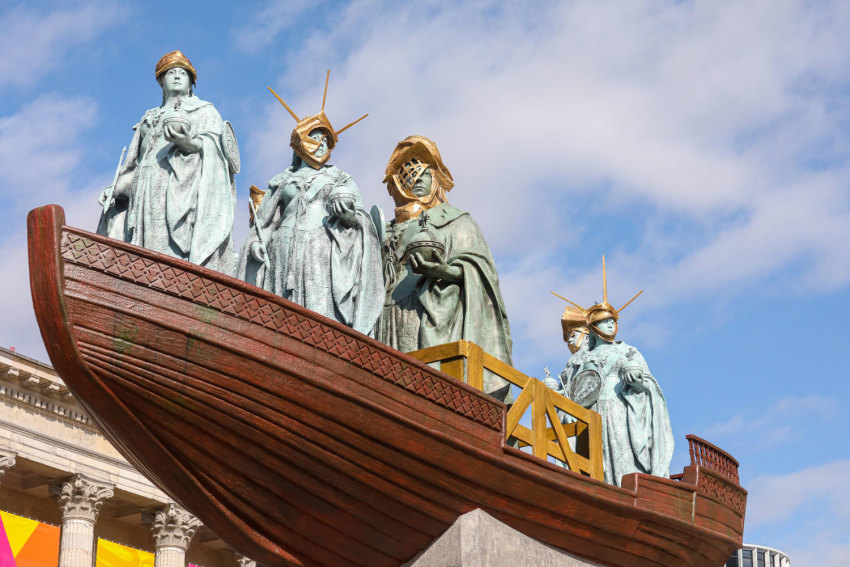
Born in Scotland in 1959, Locke moved to Guyana at the age of seven. It was the year the country, colonised by the Dutch in the 17th century, and later annexed by the British, gained its independence. “I remember seeing the banknotes being designed, the coat of arms being made,” he tells me, a formative early experience that led to an interest in heraldry, and an awareness of the ways in which national identity is collectively created and sustained. After returning to the UK to study art in his early twenties, Locke began painting landscapes, until a tutorial with the late Paula Rego RA at Falmouth School of Art provoked a change of heart. “I was out in the fields, Monet-style, doing plein air stuff, freezing my arse off on them Cornish cliffs, but painting as if it’s Guyana, in these bright hot colours when I’m not feeling like that at all.” Rego challenged him to question his subject matter, and to focus on what mattered the most to him. “My career went from day to night, it changed in that tutorial,” he says. He ditched the Cornish cliffs, and soon after, made his first trip back to Guyana.
Now in his sixties, Locke is an artist in high demand. Recent accolades include his election to the Academy in the category of Sculpture, and an upcoming commission for the façade of the Metropolitan Museum of Art in New York, to be unveiled in September. When I ask what, if anything, has changed for him over the past decades, he describes the recent institutional embrace of black British artists, pointing to Ingrid Pollard’s nomination for the Turner Prize 2022 and Frank Bowling RA’s knighthood. “Frank and his work couldn’t catch a cold back in the day,'' he says of Bowling. “I can’t tell you how ignored people were.”
I was out in the fields, Monet-style, doing plein air stuff, freezing my arse off on them Cornish cliffs, but painting as if it’s Guyana, in these bright hot colours when I’m not feeling like that at all.
Hew Locke RA
When we meet, his critically lauded installation The Procession (2022) is on display in the Duveen Galleries at Tate Britain: an extraordinary, carnivalesque work comprising 150 figures marching through the museum’s neo-classical architecture. Made during the lockdown with the aid of eight assistants and his wife, the curator Indra Khanna, The Procession is as vibrant as it is macabre, and expresses the vast, sometimes sinister interconnectedness of the globalised world. Among the throng are suited figures with leopard heads, death boats, images of the ecological impact of the oil industry in Guyana, skeletons, people with gold medals for faces, and mining companies’ share certificates stitched into children’s clothing.
The week after my visit, Foreign Exchange (2022), an intervention around a public monument of Queen Victoria, is unveiled in Birmingham – part of a citywide festival held alongside the Commonwealth Games. Locke has transformed a single bronze statue of the monarch into a seafaring tableau, installing a boat around the figure and dressing her – along with five additional imitation bronzes – in golden, warrior-like headwear. At a time when debates over monuments to Britain’s imperial past have reached fever-pitch, Foreign Exchange offers an alternative to tearing them down or treating them as inviolable. Locke adds to what is already there, making a temporary alteration that draws attention to the piratical nature of colonialism, and the ways in which Britishness has been exported across the world. “When the piece comes down,” he says, “it will be just a memory. There’ll be no evidence whatsoever that anything took place.”
After an hour of conversation, Locke checks on the progress of the boats his assistants have been painting. Walking around the wooden structures, he declares that he is pleased with the colour, and begins contemplating the next stages of production. As the artist becomes increasingly absorbed, I take my cue to depart, and head back out into the Stockwell sunshine, leaving him to inspect his ever-expanding fleet.
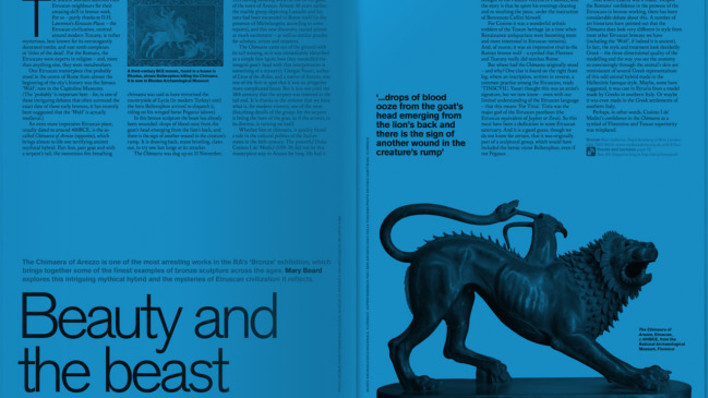
Enjoyed this article?
As well as free entry to all of our exhibitions, Friends of the RA enjoy one of Britain’s most respected art magazines, delivered directly to your door. Why not join the club?
Related articles
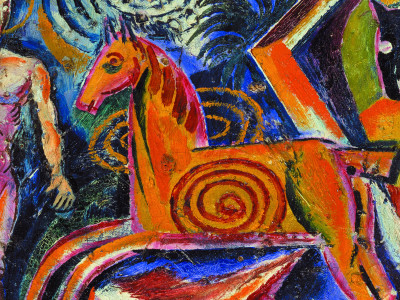
Visions from Ukraine
19 June 2024
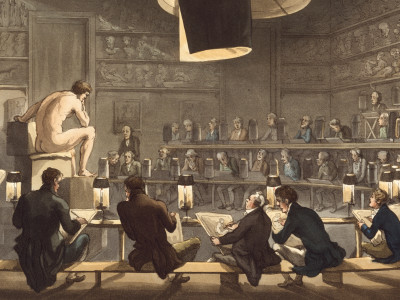
10 RA Schools stories through the centuries
16 May 2024
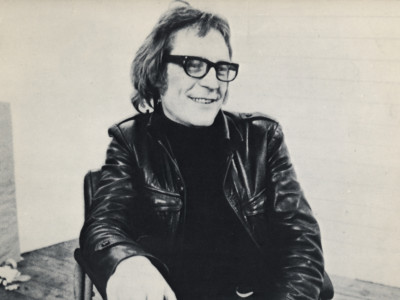
In memoriam: Mick Moon RA
1 May 2024